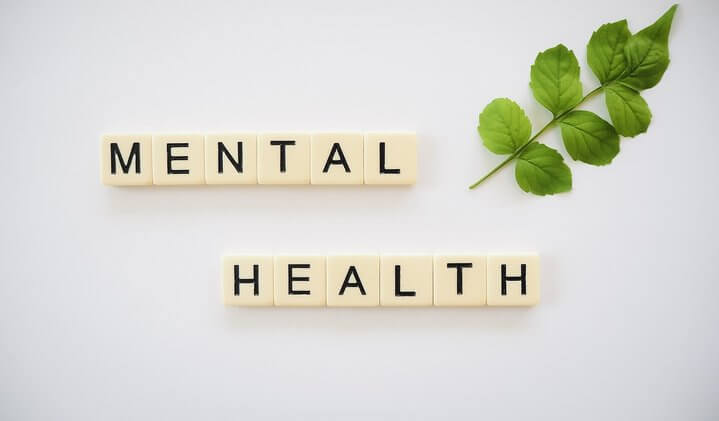We all experience self-judgment from time to time. It’s that critical inner voice that tells us we’re not good enough or that we don’t measure up.
While self-reflection is healthy, judgment can be damaging to our well-being. It erodes self-esteem, holds us back from achieving goals, and affects our relationships. That’s why it’s so important to address it head-on.
So let’s go, and explore the basics of self-judgment in this blog post.
What is Self-Judgment?
Self-judgment is the act of evaluating oneself in a harsh or negative manner. It’s when you highlight, over and over, your perceived flaws, inadequacies, or mistakes.
Your thoughts focus on criticism and negative self-talk.
For instance, after making a mistake, our thoughts might sound like:
“I’ll never be good at this.”
“I’m so awkward, nobody likes me.”
A more subtle form could be downplaying your achievements. Like attributing a well-deserved promotion to luck, rather than acknowledging your hard work.
Self-judgment creates unnecessary barriers to self-acceptance and growth. It becomes a pervasive part of your thoughts, and leads to low self-esteem and stress.
But, you have the power to overcome those negative thoughts and emotions.
Using your self-awareness and will-power, you can change these inner patterns.
Related article: Transcend Your Inner Critic: Shift Your Mindset for Personal Growth
Self-Judgment vs. Self-Assessment
Self-judgment and self-assessment serve distinct purposes and have different impacts on our well-being.
Self-judgment involves negative self-talk and focusing on your perceived flaws and failures. This creates a cycle of negativity and self-criticism.
In contrast, self-assessment is a fair evaluation of your behavior, skills, and performance. It is a more balanced and constructive process, generally free from emotional bias. It helps identify areas where you excel or need to improve, without negative emotions.
You might recognize a mistake and think, “I didn’t do well on this task, but I can learn from it and do better next time.” This approach allows you to learn from your experiences and make positive changes.
Self-assessment is a helpful tool for personal growth and improvement. It promotes self-awareness and facilitates constructive feedback.

Self-Judgment in Daily Life
Self-criticism can affect our thoughts, emotions, behavior, and well-being. It can sneak into our life without us realizing its harmful effects.
Upon waking up, you might find yourself nitpicking your appearance in the mirror. Throughout the day, minor mistakes at work may lead you to berate yourself.
It can also appear as a fear of others’ judgment.
Even during downtime, you may be criticizing yourself against friends on social media.
This constant self-judgment can lead to feelings of inadequacy and diminish your confidence. It can leave you mentally exhausted and drain your emotional strength.
It’s important to recognize these thoughts, so we can work towards changing them.
Impact on Your Well-Being
Self-judgment can impact your inner and physical health in several ways:
Emotional reactions
When you are always critical of yourself, it erodes your self-esteem. You feel inadequate and incapable.
Your inner critic might say you’re not good or capable enough. The more you judge yourself, the higher your stress levels become. All this leads to overwhelm, burnout, and diminished self-worth.
Effects on physical health
Emotional burdens can also manifest in our body. They contribute to stress-related issues, such as headaches, fatigue, hypertension, or digestive problems. Additionally, persistent stress interferes with our sleep patterns and causes poor-quality sleep.
The impact on mental health also leads to a weakened immune system, making us more prone to illness.
Impact on personal growth
Self-judgment makes us fearful of taking risks, due to the fear of failure and criticism. Lack of confidence impacts motivation and drive, making it difficult to pursue goals.
This article by Psychology Today states the reason to avoid it:
“The most compelling reason is that this constant criticizing can blind you to the actual causes of your problems, and rob you of solutions.”
Constant self-criticism leads to indecision and impacts our decision-making abilities. Over time, this limits our experiences and opportunities.
Long-Term Benefits of Overcoming Self-Judgment
Dealing with self-judgment has a profound positive impact on your life.
- Improved self-esteem and confidence.
- Greater self-awareness.
- Openness to new experiences.
- Enhanced relationships.
- Improved Physical Health.
- Better decision-making.
- Increased motivation and personal growth.

Common Triggers
Understanding what triggers self-criticism is the first step towards improvement.
Childhood experiences
Growing up in a judgmental environment, or with overbearing authority figures. This could lead to a persistent and negative inner critic.
Constant comparisons to siblings or peers can imprint emotions of inadequacy. It causes the belief that one’s worth depends on outperforming others. The result is a cycle of scrutiny and self-judgment.
Social media and societal pressures
Curated and often unrealistic depictions of others’ lives are everywhere. This is especially the case in social media. Comparing your life to these idealized versions may make you feel lacking.
Besides these main two triggers, there’s also:
- Setting unrealistic expectations. Like aspiring to lose 20 pounds in a week through extreme dieting and exercise.
- Negative thinking patterns. These may include overgeneralization, labeling, and filtering.
Recognizing Self-Judgment Patterns
Now that we’ve explored the impact and triggers of self-judgment, let’s see how to recognize it in your life. This involves becoming aware of the negative thoughts and behaviors that perpetuate self-criticism.
Begin by paying attention to your inner dialogue. Are you using harsh language when thinking about your abilities and worth? Notice how often you criticize yourself for your mistakes.
Here are some signs that you may be engaging in self-judgment:
- Comparing yourself to others, whether in appearance, achievements, or social status.
- Worrying about others’ opinions and avoiding social interactions.
- Be aware of how you handle setbacks. Do you brood over them, or do you accept them as part of the learning process? Are you afraid of taking risks?
- Setting unrealistic standards, leading to disappointment and self-criticism.
- Experiencing physical symptoms, such as tension, headaches, or digestive issues when under stress.
Related article: 3 Simple Strategies to Overcome Self-Criticism
The Role of Self-Acceptance
Self-acceptance allows you to embrace your authentic self, without conditions or limitations. It’s acknowledging your strengths and weaknesses with kindness and understanding. The result is a healthy self-perception.
Acceptance doesn’t mean you’re complacent. It means accepting that you’re a work in progress, open to growth and change. You realize that your worth is not tied to successes or failures, it´s inherent and unconditional. This diminishes the fear of failure and enhances resilience and emotional well-being.
Here are some tips on how to cultivate self-acceptance:
– Practice positive affirmations about yourself. Show yourself compassion.
– Understand nobody is perfect, it’s okay to make mistakes.
– Practice gratitude.
By embracing self-acceptance, you can counteract the negative effects of self-judgment.
Related article: Self-Acceptance: Embracing Who You Are

Wrapping It Up
Self-judgment is a debilitating thought that can impact your emotional well-being. Confronting it requires self-awareness, continuous effort and patience. But, this process leads to profound and lasting improvements in one’s quality of life.
As you cultivate self-acceptance, you create a healthier, positive self-view. You can focus on personal growth and well-being, without constant self-criticism.


0 Comments